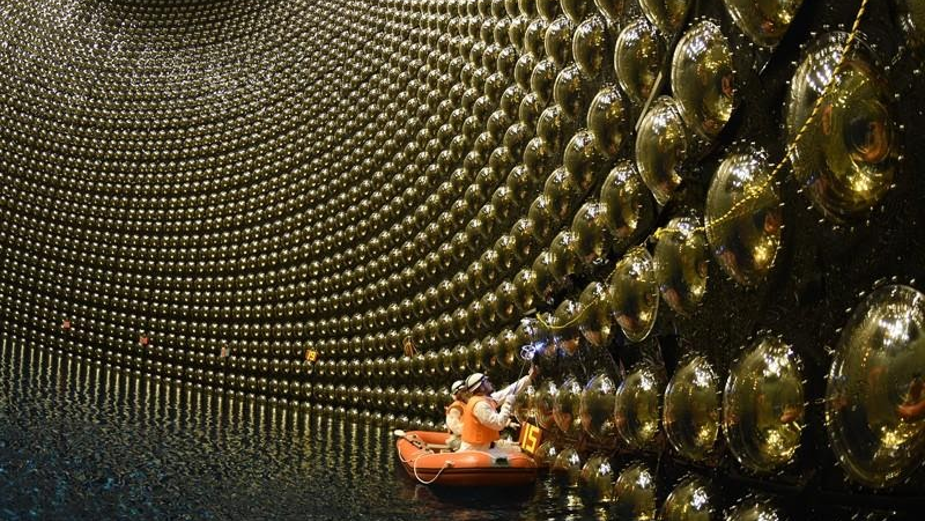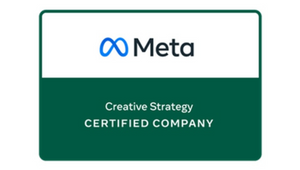
Human Truths One Year Later: Lessons of Discovery in a Time of Coronavirus

Photo Credit: Kamioka Observatory/Institute for Cosmic Ray Research/The University of Tokyo
Over the course of the last year, we have been tracking the impact of the pandemic on universal human truths. We know that people across Europe and the UK have been considering what truly matters, with nearly half of Europeans saying that they believe that the world will forever be changed by the pandemic. In our ongoing series ‘Human Truths in a Time of Coronavirus’, we have explored how the fundamental human truths have been reassessed by people around the world and how brands, businesses, and organisations can respond in a meaningful way.
As we enter the second year of the pandemic and search for a path to renewal, we have invited thought leaders from diverse sectors and areas of expertise from across Europe and the UK to reflect on what they have changed their mind about when it comes to each of these truths. In this first instalment of a six-part series, we have asked our contributors to reflect on what they have changed their mind about when it comes to the human truth of discovery.
Our survey data suggests two out of five Europeans have appreciated the time that they have been afforded to take greater notice of the little things in their lives – and they hope that this will continue in the future. The territory of ‘discovery’, of course, ranges from personal lessons in capability and skill to larger scale discoveries in view of global institutions such as democracy and science. Our contributors provide insights on how the singular event of the global pandemic has catalysed discovery in their lives and work. In turn, these reflections on discovery provide a set of lessons for amplifying the value of discovery in challenging times.
Ask yourself: when was the last time you did something for the first time?
PINKY LILANI: “We had to have a real paradigm shift. The question I’ve had to ask is: when was the last time you did something for the first time? I think that was it; that huge curiosity for learning different ways of sustaining a world when it was very different to the one that we knew. There's a very famous saying: it's not about discovering new lands but seeing it through new eyes. We discovered that we could do whatever we used to do but in a different way and do it equally well and in some cases even better. For our organisation, we discovered that we want to do things that are Covid proof, for instance, our Kindness & Leadership 50 Leading Lights which we launched three years ago in the UK, and last year we launched this in Asia-Pacific and we discovered that we could launch a platform without actually meeting.”
Discovery is fundamentally a balance of assessing the risks and rewards.
RACHEL REESE: “I've discovered how fragile democracy and inclusion can be in lockdown. I've seen many of my rights being reduced and still being discussed for further reduction, my right to protest, my rights to medical care, my right to self ID, my gender, my protection, my freedom on social media, my freedom to present openly in public. In the last 12 months I have seen a suppression of all my rights and that feels very dark. I think that what normally happens is that when you're out, you’re seeing clients or friends, you get balance. Because I don’t have many friends telling me it’s not so bad, I don’t have allies coming to me, I don’t have many corporations telling me that they’re doing something about this like I would if I were coming in and out of their boardrooms, the rest feels darker and more sinister.”
Appreciate the iterative nature of discovery; move toward the future with an eye toward the past.
PATRICK HARRISON: “I always feel nervous when discussing discovery or innovation, as it seems to me it’s virtually impossible to work out where any new idea or activity actually starts. Someone far cleverer than me said that we stand on the shoulders of our ancestors; we see and understand more because of the work and actions of those who came before us. That said, we do seem to be living in a period of discovery: the rapid development of Covid-19 vaccines is an obvious example, but there is also considerable innovation going on around the world to meet, for example, net zero and other significant environmental targets. I would dearly love for a better ‘new normal’ to be the ultimate discovery of this deeply challenging moment in our history.”
Rewild your attention to the wonders of the natural world.
LUCY AITKEN: “Discovery has meant a reawakening about the natural world. With normal ‘indoor’ activities largely closed off, our attentions have turned to the outside world, whatever the weather. Who knew that birdwatching in London would become a thing? Or that the sight of wellies on Hampstead Heath or Highgate Woods would become de rigueur as families marched through mud and rain? Yet, we have delighted in (re)discovery of the changing seasons – the sounds of birdsong more audible with less air traffic, a sprinkling of snow, a sunny day. This is in stark contrast with the other means of discovery which is living life through a screen where the clothes we wear, the food we eat, the household appliances, consumer electronics or even the cars we buy go straight from the screen and into our worlds.”
Discovery is a fortuitous mix of intention and necessity.
KWAKU DAPAAH-DANQUAH: “As a native internet user, I've always been a person that will research things that spark an interest. I enjoy going on Wikipedia binges about particular topics or historical figures and consume all the freely available information. However, I think over the last year, I've had more time to face the bigger life questions that I would often push to the side. This newfound time has allowed me to become more intentional with what I search for and choose to take in. The pandemic has disrupted the status quo of ‘how things are done’, and as a result, I've had to adapt projects that I work on in significant ways. With the recording studio myself and co-hosts of Over The Bridge Podcast being closed down during lockdown, I was forced to produce a podcast remotely, from finding the best equipment for our budget, recording and editing software as well as various post-production hacks. Again, these are skills that I may not have ever discovered had it not been for necessity.”
The higher the stakes, the more unifying the process of discovery can be.
DR DAN CARUCCI: “Discovery this past year has been like the entirety of humanity is watching every moment of how we sent men to the moon. The pace of every medical advance and failures has been scrutinised like never before. All these discoveries are happening in people's living rooms, around the dinner table. Sometimes I feel like we're watching a horse race, cheering our discoveries with our entire life savings bet on the outcome of this single race.”
More about the authors and contributors:
Lucy Aitken, Managing Editor, LIONS Intelligence
Dr. Dan Carucci, MD, PhD, Global Chief Medical Officer McCann Health & Global Scientific Council
Dr. Rodney Collins, PhD, SVP, Director, McCann Worldgroup Truth Central
Kwaku Dapaah-Danquah, Social Entrepreneur, Podcaster and Programme Manager
Patrick Harrison, SVP, Client Experience, Weber-Shandwick
Pinky Lilani CBE DL, Founder & Chairman, Women of The Future Programme
Rachel Reese, Co-Founder, Global Butterflies
Harjot Singh, Global CSO, McCann













